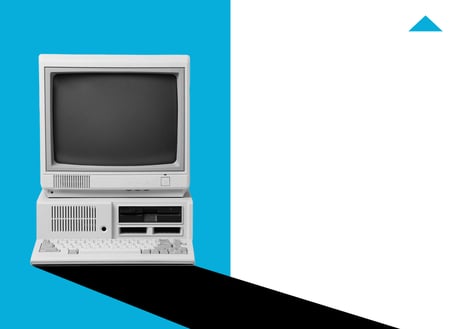Technology
Your Tech Team, Your Greatest Asset
Tech professionals drive innovation, but the fast pace, constant upskilling, and high-pressure environment can take a toll on morale and retention. Rewardian helps tech companies recognize and celebrate achievements effortlessly, turning daily wins into meaningful moments. By fostering a culture of recognition, collaboration, and growth, organizations can boost engagement, retain top talent, and empower teams to innovate at their best.
3 Major Problems in Technology
High-Pressure Work EnvironmentThe constant push for innovation places enormous pressure on tech professionals. Success often depends on generating groundbreaking ideas and delivering results quickly, leaving little room for error or downtime. This relentless pace can lead to heightened stress, long hours, and difficulty maintaining work-life balance. Over time, the pressure to continuously perform at peak levels can contribute to burnout, reduced job satisfaction, and challenges in retaining top talent. |
|
 |
|
|
|
The Burnout CycleStaying relevant in the world of tech means having a workforce that’s always up-to-date with constantly evolving advancements. |
The State of Employee RetentionThe competitive and stressful nature of the tech industry often leads to aggressive recruitment strategies and frequent job hopping, as employees seek stronger growth opportunities or higher compensation. Career advancement in tech can be limited, prompting many to move between roles to find growth elsewhere. Large tech companies often experience even shorter employee tenures, and the industry’s turnover rate is among the highest, at 13.2%. |
|
 |
The Reality of Burnout in ManufacturingHard work drives this industry: long shifts, quick problem-solving, and relentless follow-through. But there is a fine line between dedication and burnout. When once-reliable employees disengage, call out more often, or quietly job hunt, it takes a toll on productivity, retention, and morale. Addressing burnout isn’t just good for employees—it is essential for long-term success. |
|
 |
|
|
|
Balancing Expansion and Retention: The Future of Hiring in ManufacturingTurnover and retirement rates have been steadily increasing, with 66% of manufacturers reporting that filling open positions now takes longer. The challenge of recruiting skilled workers has put additional pressure on companies, forcing them to refine hiring strategies and invest in employee retention efforts. |
Consequences of a poor manufacturing work cultureA lack of creativity and innovation leaves employees disengaged, hindering both personal growth and company progress. In manufacturing, poor culture often drives workers to seek more fulfilling roles elsewhere. This revolving door effect reduces productivity and increases training costs. While there’s momentum to improve culture, real change requires a fundamental shift in mindset—one that takes time, commitment, and a break from outdated norms. |
|
 |
Source: Talkspace, Centum Search
Where Recognition Meets Results
Effortless Recognition for Fast-Paced Tech Teams
Building a Culture of Recognition for Tech Innovation
Creating a Connected and Collaborative Tech Culture
Hear It From Our Clients
“Our favorite thing about Rewardian is their ability to listen to us. We continue to come to our Rewardian account managers with different ideas for the Salute program, and ninety nine percent of the time they have been able to accommodate. The flexibility within their service and platform has allowed us to be creative in the way we engage our employee base via rewards & recognition”
Ready To Turn Recognition Into Results?
Talk to our team and learn how Rewardian helps tech teams recognize innovation, fuel collaboration, and keep top talent engaged.




